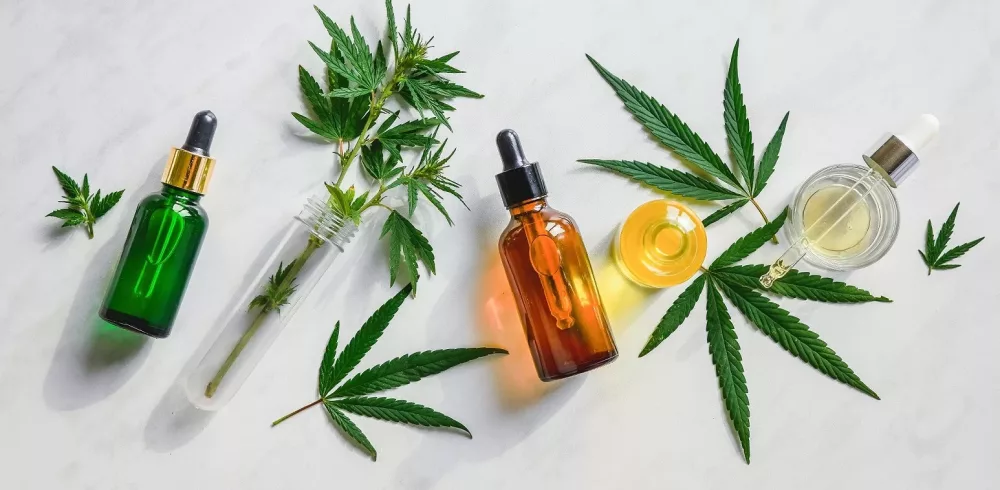With demands in sustainability, conscious living, and social responsibility on the rise, the leading trade show Natural & Organic Products Europe – recognised as an ‘established innovation hub for health, food, beauty, wellness and sustainable living’ by Mintel – is the place to discover what’s new and next in the world of natural and organic.
So, what trends will be shaping the industry in the year to come?
Trend predictions for 2020 were provided by senior representatives from Holland & Barrett, Soil Association, Green People, HFMA, Beauty Kitchen, Motion Nutrition, The Vegan Society, Natural Products News, OF+ Consulting, Glow Organic, and NaturalProductsGlobal.com. While responses were varied, many agreed that zero waste, innovations in packaging, CBD, a post-Brexit Britain, and the climate crisis are notable talking points this year. Whilst trends in brain nutrition, personalised nutrition, bioengineered ingredients, and edible beauty also made the list, among others.
Planet-centric decision making
“For me, the most interesting trends in 2020 will spring from the climate crisis and how brands respond to the growing problem. I’m optimistic that in our sector at least, environmental issues will underpin the majority of launches. World events like the Australian bush fires are only going to further hammer home to consumers the magnitude of the climate crisis and the importance of planetary responsibility – on an individual level and, of course, at government and industry level,” says Rosie Greenaway, editor of Natural Products News.
“The climate emergency our planet is facing is now undeniable. This presents an opportunity for the industry to come together and champion sustainability in innovations that are kinder to the planet and the creatures we share it with,” says Abigail Stevens, trademark marketing manager at The Vegan Society.
“I think this year we’ll see climate change messaging increasingly pushing its way into the marketing of natural and organic. In particular, I expect to see organic responding to the shift in consumer behaviour from individual-centric to planet-centric decision making,” says Jim Manson, editor-in-chief of NaturalProductsGlobal.com.
Organic as a sustainable solution
“While there have been more reports and documentaries on biodiversity decline and the impacts of intensive farming methods, Soil Association is hopeful that the relevance of organic as a solution will waken shoppers from their routine habits, and the majority will want to understand more about where their food comes from and how it is produced. Brands that are both organic and have other attributes such as ‘free from’, ‘vegan’ or ‘less packaging’ will have the greatest chance of greater success,” says Finn Cottle, trade consultant at Soil Association.
Eating for your brain
“I predict that the concept of integrated health will be even more mainstream than it is at the moment. This year has been a turning point in terms of the awareness of mental health issues in the media and I was approached by a team of worldwide leading trauma and attachment psychologists and psychiatrists, who recognised the benefits of integrating nutrition to aid the healing of mind and body for a better overall recovery. This led me into conducting lengthy research into the nutrients to best support depression, PTSD, anxiety and insomnia and formulating two new supplements for the mental health professionals to use with their patients,” says Dr. Marilyn Glenville, leading nutritionist and authority on women’s health issues.
Vegan backlash
“This year, I think we will see a rise in the ‘vegan backlash’. Health and eco-conscious individuals turning to a vegan diet have seen that too many products are highly processed, of questionable nutritional value, and use unsustainable/unethical ingredients. I hope the backlash will bring some perspective to the market, allowing vegans to marry convenience, taste, health, and sustainability. One opportunity for 2020, will be education on ‘vegan scratch cooking’, where retailers sell ingredients which permit a more natural, plant-based diet based around organic whole foods – fruit, veg, nuts, grains, bean, and pulses – making this more accessible to the masses and provide a competitor to recently launched over-processed food and drink,” says Simon Wright, sustainable food consultant and founder of OF+ Consulting.
Zero waste and innovative packaging
“Unsurprisingly, plastic-free and zero waste will continue to be a focus in 2020 with customers looking to leave as small a mark on the planet as possible,” says Mitch McCarthy, assistant category manager at Holland & Barrett.
“At Motion Nutrition, we’ve moved towards plastic-free, compostable materials, but what should people do in areas where councils don’t collect food waste? And what is happening to recyclable waste: is it really getting recycled, or ending up in a landfill? Providing real solutions to these issues in a way that is easy for consumers to grasp will be a fantastic opportunity for growth to whoever can crack it. We need to offer solutions that do not put the burden of responsibility on the consumer, but instead make it easier for them to lead an environmentally conscious life. How about liquid shampoo packed in a bottle made of hard soap?” says Joseph Welstead, CEO of Motion Nutrition.
“The industry and consumers have started to realise that the impact on the environment of beauty product packaging is even bigger than the ingredients used. The trend is being driven by consumers and the industry is trying to react quickly by reducing packaging and making it more recyclable, but this is just being ‘less-bad’. Many are also launching refill options using unrecyclable pouches, however only those that are truly mission led and focus on reuse models will really meet the consumer demand for ‘more-good’,” says Jo Chidley, co-founder of Beauty Kitchen UK.
Less is more in post-Brexit Britain
“While Brexit uncertainty has begun to dissipate, its day-to-day financial realities are still unknown; I wouldn’t be surprised to see a reluctance towards spending from consumers, which will strengthen the ‘less is more’ position of multifunctional beauty products,” says Rosie Greenaway, editor of Natural Products News.
“The move towards a post-Brexit Britain brings us into unchartered territory and could see natural and organic brands navigating hurdles to import ingredients and finished products. By manufacturing in the UK, companies, like Green People for instance, hope to circumvent this and plan to continue expanding its local product offerings throughout 2020,” says Stephanie Matson, marketing manager at Green People.
Regulatory status of CBD
“Ironically, I see the greatest opportunity for 2020 as also being the greatest threat, and that is the regulatory status of CBD food supplements, and our continued ability to freely market these products. On the one hand we have a new market emerging that is quite unlike anything I have seen in my career (some estimates say that the market for CBD supplements will before too long exceed the current entire market value for all other food supplements combined). But the real challenge comes from regulators seeking to see these products removed from the market, thereby running the risk of driving consumers to less-regulated online sources of supply,” says Graham Keen, executive director at HFMA.
“CBD will only continue to grow as a staple in people’s beauty routines and move increasingly into the mainstream. People will be looking for products led with single ingredients, so they know exactly what they are putting on their body – avoiding long, complicated ingredients lists which don’t feel as natural,” says Mitch McCarthy, assistant category manager at Holland & Barrett.
“I think we’ll also see some clarification in 2020 on how the CBD category will be regulated in the future,” says Jim Manson. Whilst Rosie Greenaway adds: “CBD is likely to keep turning up – not just in health supplements but also in beverages.”
Bioengineered ingredients
“The growing consumer interest in natural, plant-based ingredients in beauty products is likely to put an even bigger strain on the planet. A more sustainable option will be to bioengineer ingredients to offer the best of both worlds – sustainably harvested ingredients, and the benefits of plant-based ingredients for the skin. If this is able to be achieved, it will take the strain off the environment and meet market demand,” says Mel Jenkinson, founder of Glow Organic.
“In terms of trend-led ingredients, we’re expecting squalane to continue to be a big ingredient in skincare. This can be found from natural sources now such as sugar cane and olives and acts like an emollient when applied to the skin,” says Mitch McCarthy, assistant category manager at Holland & Barrett.
Personalised nutrition
“In health and nutrition, there is a lot of noise currently around personalised health. It’s not surprising that the big food and health multinationals are snapping up the most innovative new players in this field. We will also see efforts being made in 2020 to formalise a definition of ‘personalised nutrition’ so that its potential is more widely understood, and it becomes embedded in our healthcare culture,” says Jim Manson, editor-in-chief of NaturalProductsGlobal.com.
Edible beauty
“One of the biggest trends in the natural health sector is ‘edible beauty’ – dietary supplements, nutrition and foods for anti-aging, skin health, and beauty. Market research predicts that in 2020 the ‘digestible beauty product’ market will reach $7.4bn (Global Industry Analysts Inc). There’s an amazing opportunity for the skincare and nutrition fields to start joining forces to create innovative ways to tackle both inner and outer beauty,” says Star Khechara, founder of Academy of Beauty Nutrition.
Natural & Organic Products Europe 2020
Retailers and buyers attending this year’s Natural & Organic Products Europe will find all of the above and more. Over 700 exhibitors will be there, showcasing the best choice of natural, certified organic, vegan, Fairtrade and free-from food, drink, VMS, cosmetics, skincare, and eco-living products to hit the market.
Show features include 70 speakers across three theatres; two New Product Showcases; international and regional pavilions; a new Spritz area (natural, organic, biodynamic, and vegan wines, beers and no-and-low drinks); Independent Retailer Networking Lounge; Vegan World; Successful Retailing and Live Innovation Pitches with Ocado, Sainsburys and Holland & Barrett – plus much more.
Manufacturing & Engineering Magazine | The Home of Manufacturing Industry News













